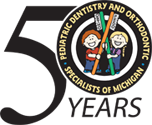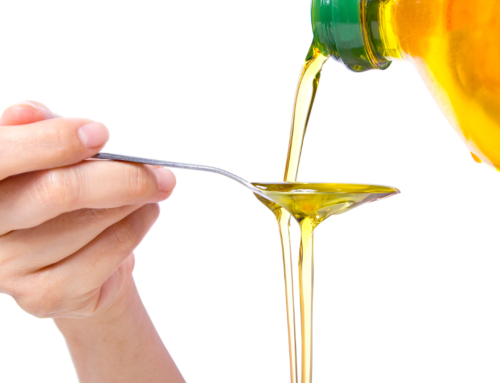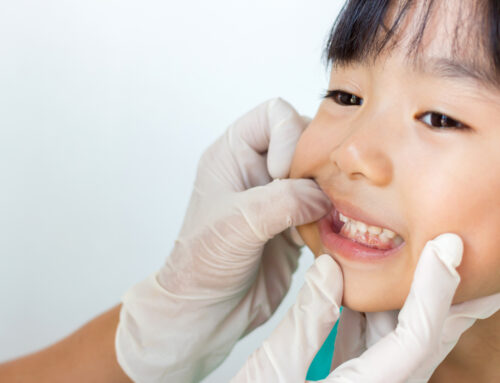Caries is the disease process that leads to cavities and is a more technical term dentists use when we are diagnosing cavities. Did you know that newborn babies are not born with the bacterium that causes caries in their mouth? This is a fact! Newborns only acquire these bacteria through the saliva of their caregivers. Caregivers pass their saliva onto baby by blowing on their food, sharing spoons, testing their food, or even putting baby’s pacifier into their own mouths to “clean it off.” Now, don’t panic as a parent if you feel like you did something wrong to pass on this bacteria because it is an inevitability to life that they will acquire or become exposed to this bacteria at some point.
Preventing Caries or Cavities
However, it is important to avoid sharing saliva with your baby right from the start to attempt to delay the acquisition of these bacteria as it will help protect baby’s teeth. Some things you can do to keep baby’s teeth healthy are to avoid blowing on or sharing your baby’s food and use only water to clean your baby’s pacifier. Also, be sure as caregiver you eat healthy foods, brush and floss your teeth regularly, and visit your dentist to keep your own mouth as clean as it can be. It will be impossible for you not to kiss your beautiful baby and the healthier shape parents keep their mouths the less likelihood of transmitting the bacterium.
Caring for Baby’s Teeth
Be sure to care for baby’s mouth too. Even before teeth are visible, clean your baby’s gums with a gentle, clean cloth. Once teeth do appear, be sure to brush his or her teeth in a way that prevents them from swallowing the fluoride toothpaste. A very small smear of toothpaste is recommended for children starting at age 1 and our staff and doctors would be happy to share information on how to properly use fluoride toothpaste with your children. We follow the recommendations of the American Dental Association and American Academy of Pediatric Dentistry.
Be sure to brush their teeth right before bedtime as the mouth dries out the most at night so teeth are most at risk to form cavities at that time if they are not cleaned of food debris. We suggest you only give treats or juice at meal times and only after he or she is six months old, and limit candy or unhealthy snacks as your children grow older. Also, be sure to visit your pediatric dentist as soon as your baby’s first tooth arrives!
If you have any other questions about baby’s oral health, please feel free to ask us. We are here to help.
About Pediatric Dentistry and Orthodontic Specialists of Michigan, the offices of Drs. Delaney, Plunkett, Ralstrom, Makowski, Thanasas, Ker, and Associates
Pediatric Dentistry and Orthodontic Specialists of Michigan have specialized in pediatric dentistry and orthodontics since 1968. Our family-friendly and newly renovated office gives patients and families a more comfortable and consistent experience with dentistry from the very beginning. Our pediatric dentists treat children from newborn to 18 years of age while our orthodontists provide care for both children and adults and are proud to be Preferred Providers of Invisalign and Invisalign Teen services. The ability to treat all patients with compassion and individuality, including those that may have special needs reaches beyond our facility, which has treatment rooms available for children who require additional privacy and customized care options. We pioneered valued hospital affiliations to allow dental services to be performed at DMC Children’s Hospital and St. John Macomb Hospital, when appropriate or necessary, and our specialists are also proud to be on staff at Henry Ford and Beaumont hospitals.





